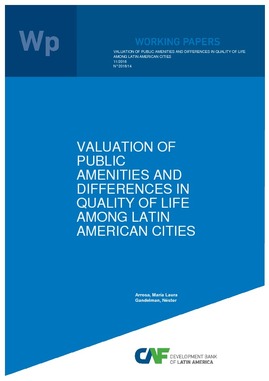RED 2017. Urban growth and access to opportunities: a challenge for Latin America
Resumen
This report seeks to understand the most critical development challenges currently faced by Latin American cities. Special attention is given to the concept of accessibility, that is, the capacity of households and firms to reach the opportunities offered by a city. Accessibility depends on four areas of public policy action, which are closely related to each other: planning and regulation of land use, urban mobility, the performance of the housing market and the existence of mechanisms for metropolitan coordination.
The concept of accessibility draws attention away from the debate on whether cities should be more or less compact. Accessibility can be achieved in different urban layouts, with different sizes and levels of population density. Hence, public policies must focus on increasing access to opportunities. Any efforts made in this regard must consider the fact that Latin American cities will tend to expand due to the process of secular economic development, which leads households to seek larger properties and use cars to a greater extent.
Materia
País / Región
Fecha
2017-09-14Citar de esta publicación
Item perteneciente a la Colección
Items Relacionados
Valuation of Public Amenities and Differences in Quality of Life among Latin American Cities
We use a life satisfaction approach for the valuation of public goods and amenities in Latin American cities. We apply a homogenous database of seventeen ...
Urban Resilience - Climate change vulnerability and adaptability index
Cities in Latin America have been hit hardest by climate-associated disasters. With 25% of the urban population living in vulnerable, precarious ...
Public-Private Partnership in Latin America. Learning from experience
In recent years, economic growth in Latin America has led to increased investment opportunities for the private sector, while legal transformation, ...






